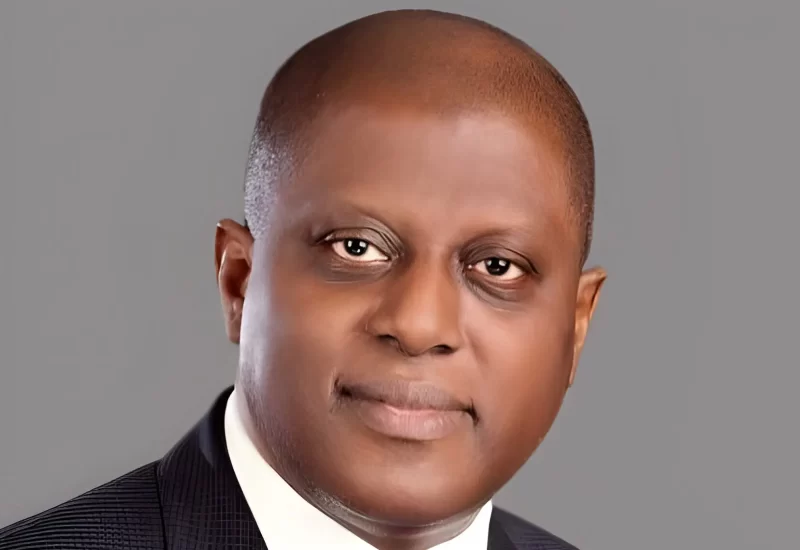Africa
CBN’s Reforms and the Restoration of Banking Confidence -By Zekeri Idakwo Laruba
Cardoso’s transparent communication style has further helped rebuild trust. By engaging stakeholders through forums such as the Bankers’ Committee and the Body of Bank CEOs, the CBN ensures that reforms are not just imposed—but understood, accepted, and owned.

“It is said in the Holy Book that, “where your treasure is, there your heart will be.” Such is the renewed commitment being witnessed in Nigeria’s financial landscape today.
The country’s banking sector is regaining the trust of domestic and international stakeholders, thanks to a strategic blend of political will, regulatory clarity, and resilient leadership.
Under the administration of President Bola Ahmed Tinubu and the focused leadership of Central Bank Governor Olayemi Cardoso, the CBN is driving reforms that are stabilizing the financial system while laying the groundwork for a more resilient, innovative future—especially in digital banking.
Since assuming office, the Tinubu administration has declared macroeconomic stability a national priority. Backed by this vision, the CBN’s recapitalisation programme, introduced in 2023, stands as a central pillar of the effort.
It aims to strengthen the capital base of banks, align with Nigeria’s long-term growth ambitions, and shield the sector from external shocks. This political backing goes beyond rhetoric.
With initiatives like foreign exchange liberalization, subsidy reform, and regulatory transparency, Tinubu’s government has created an environment for real reform—empowering the CBN to act decisively and rebuild investor and customer confidence.
At the helm, Governor Cardoso has shown a clear grasp of the delicate balance needed to reform a complex financial ecosystem. His approach has been methodical, sequenced, and aligned with global best practices.
Recent measures, particularly those involving legacy institutions with temporary COVID-era regulatory reliefs, reflect this careful and experienced stewardship. Rather than withdrawing support abruptly, the CBN introduced transitional guidelines.
These include temporary restrictions on capital distributions such as dividends and bonuses—allowing affected banks to retain earnings and build capital buffers. This targeted, time-bound intervention signals a regulator that is both responsive and responsible.
Cardoso’s transparent communication style has further helped rebuild trust. By engaging stakeholders through forums such as the Bankers’ Committee and the Body of Bank CEOs, the CBN ensures that reforms are not just imposed—but understood, accepted, and owned.
The success of these reforms will hinge on consistency and continuity. The March 31, 2026 recapitalisation deadline provides a clear roadmap, and encouragingly, most banks are ahead of schedule in meeting new capital requirements.
To maintain momentum, the CBN must stay proactive in supervision while resisting political pressures that could compromise regulatory standards. Continued alignment with global norms—such as the Basel III framework—and partnerships with international stakeholders will further strengthen credibility.
Fiscal and monetary authorities must also remain aligned. The government’s wider economic agenda must continue to complement the CBN’s objectives in inflation control, forex stability, and industrial expansion.
Beyond balance sheet stability, Nigeria’s banking sector is evolving towards a digital-first future. Fintech, mobile banking, and AI are reshaping financial services. Regulatory focus must now extend to digital infrastructure, cybersecurity, and inclusive finance.
More CBN policies are expected to support this transformation. Digital banks and fintech startups are already finding increased acceptance within the formal system—an encouraging sign of a maturing regulatory ecosystem.
What is happening in Nigeria’s banking industry is more than a technical fix—it is a structural rebirth. With Tinubu’s political will and Cardoso’s steady leadership, the CBN is restoring trust, attracting capital, and preparing the financial sector for a secure and innovative future.
As the 2026 recapitalisation deadline approaches and digital finance expands, one thing is clear: Nigeria’s financial future looks more stable, inclusive, and globally competitive than it has in decades.
Zekeri Idakwo Laruba is the Assistant Editor PRNigeria and Economic confidential. idakwozekeri93@gmail.com






















